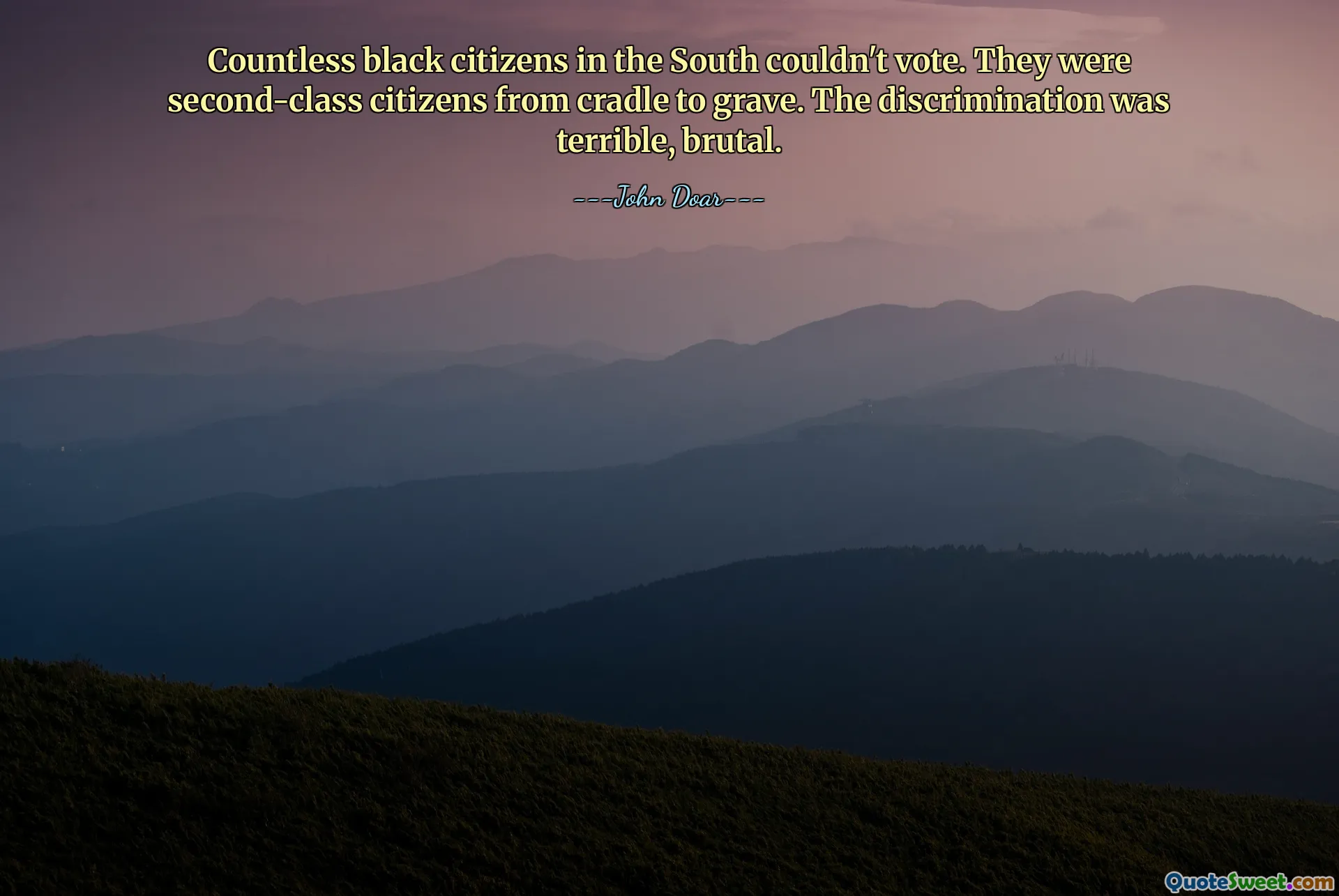
Countless black citizens in the South couldn't vote. They were second-class citizens from cradle to grave. The discrimination was terrible, brutal.
This quote sheds light on a dark chapter of history where systemic racism deeply entrenched itself in the Southern United States. The repressive measures that prevented Black citizens from voting stripped them not only of their political voice but also of their fundamental human dignity. Being relegated to second-class status from birth meant enduring lifelong discrimination, unequal rights, and societal marginalization. Such pervasive injustice created a cycle that perpetuated inequality across generations. The brutality and severity of these discriminatory practices reveal the extent to which racial segregation and suppression were normalized in that era, affecting every aspect of life for Black Americans. The struggle for civil rights and equality has involved brave individuals risking everything to challenge these oppressive structures. Understanding this history is essential to appreciating the enormity of the progress made and recognizing that the battle against racial injustice is ongoing. Recognizing these past scars helps in fostering empathy and underscores the importance of protecting civil liberties and human rights for all, regardless of race. Reflecting on such claims emphasizes the continuous need for societal reflection, reform, and remembrance, ensuring that future generations learn from these atrocities and recognize the importance of justice and equality.
---John Doar---











